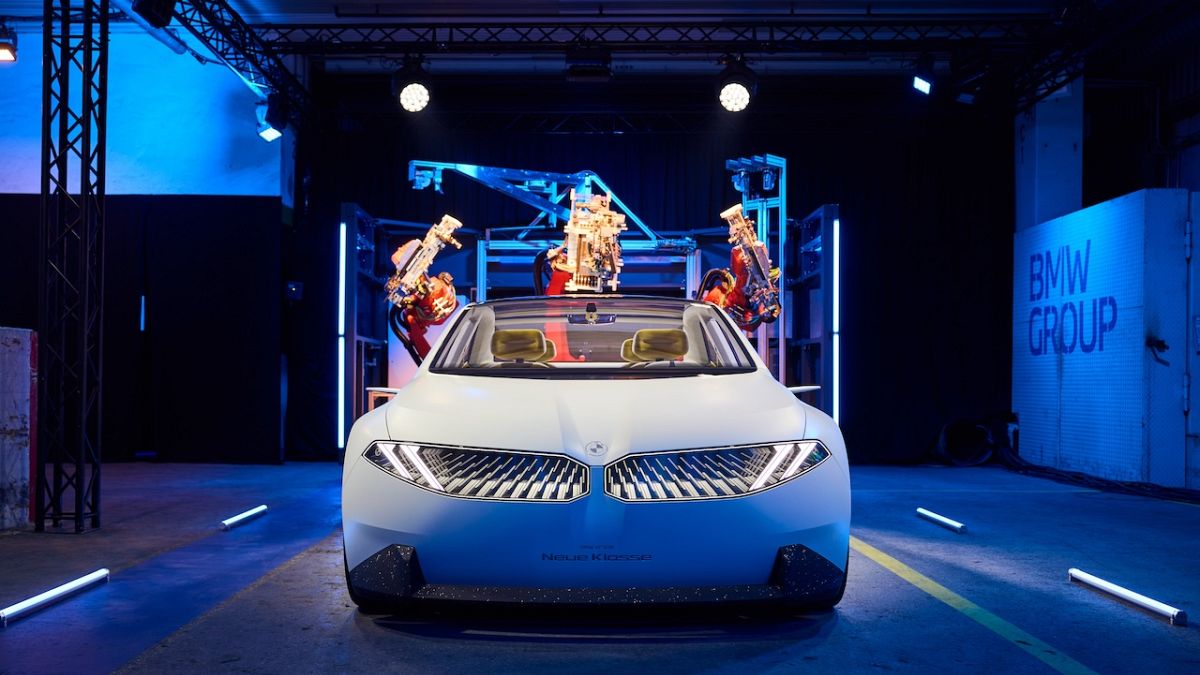BMW’s historic Munich factory will exclusively produce electric vehicles from 2027 as the company shifts towards its e-mobility targets.
Paving the way is a €650million investment that’s already seen construction begin on a new assembly line and body shop; space was freed up when internal combustion engine production halted in 2023, moving overseas to other BMW facilities.
“Munich is the beating heart of BMW,” says Plant Munich director Peter Weber. “We are delighted to be guiding the Munich plant into a fully electric future, starting with the Neue Klasse sedan.”
BMW’s Neue Klasse philosophy kickstarted its mainstream car range in the 1960s and is being reinvented for the electric era with the launch of six new models in two years, starting with an SUV which will be built in Hungary at the BMW plant in Debrecen. The launch of the first Neue Klasse sedan in Munich sees BMW’s most traditional body style remain at its halo plant.
Neue Klasse production will also take place in China and Mexico, while Hungary will make the high-voltage batteries underpinning a new fast-charging 800v architecture. This investment proves BMW still firmly has confidence in its flagship Bavarian home, though BMW board member Milan Nedeljković confirms that the new Plant Munich assembly line will remain flexible to energy solutions beyond electric.
“Hydrogen remains an important alternative,” he says. “We have a fleet of hydrogen cars out testing and we’re working intensively on improving the technology further. Alternatives need to be considered; that’s why we keep our facilities flexible to hydrogen and to other technologies.
“We won’t invest in internal combustion technology if there are no new combustion engines coming, but it’s crucial that we stay flexible on the production line for whatever may come.”
Catalysing Plant Munich’s next chapter is the increased digitalisation and artificial intelligence utilisation of BMW’s ‘iFactory’ principle. Plant director Weber says AI is already utilised at Munich – and that it’s being used to support rather than replace the plant’s 7,800 employees.
“Many employees will work on 500 cars within their shift,” he says. “To ensure they do it with premium quality, it’s fundamental that every worker knows their procedure off by heart. Training methods are the most decisive factor in achieving quality. Digitalisation is a big lever for our people to perform their job in the most robust way. For example, apprentices now learn to weld using augmented reality, learning their gun technique and speed of process before touching any metal.
“[Employees] are asking for it. They know the most critical production processes and are asking for our support. If we give our robots AI, they gain another sense. It allows our transport robots to manoeuvre more safely. It is our basic belief that digitalisation, comprising AI, is focused on supporting our people and supporting our processes.”


